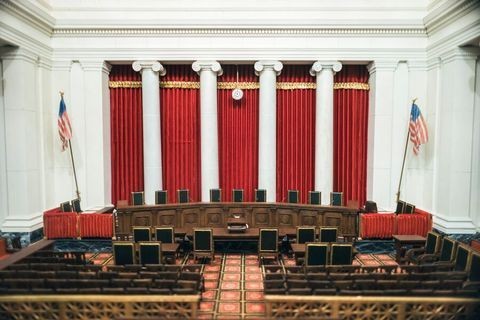Buy America, by Americans—Office of Management and Budget Solicits Industry Input on Harmonizing Domestic Preference Regimes
What You Need to Know
Key takeaway #1
Last year, the European Union legislature adopted the far-reaching Foreign Subsidies Regulation aiming to tackle the distortive effects on EU markets of financial support by non-EU countries to undertakings active in the EU. On 6 February 2023, the European Commission launched the much-anticipated public consultation on a draft Implementing Regulation, including two annexes containing notification forms for concentrations and public procurements. Stakeholders have until 6 March 2023 to submit comments.
Key takeaway #2
Industry has until March 13, 2023 to comment on the proposed rule and guidance, and should work with industry groups to identify key concerns to address, including where the BAA regulations may not be appropriate in the federally funded infrastructure context.
Client Alert | 2 min read | 02.16.23
As previewed in President Biden’s State of the Union Address, the Office of Management and Budget (OMB) issued a proposed rule and notification of proposed guidance on February 9, 2023 to improve uniformity and consistency in the implementation of Build America, Buy America (BABA) requirements applicable to federally funded infrastructure projects pursuant to the Infrastructure Investment and Jobs Act (IIJA).
This proposed rulemaking builds on preliminary guidance OMB issued on April 18, 2022, shortly before the BABA requirements became effective in May 2022. While the preliminary guidance focused heavily on agency waivers (both in terms of process and criteria), the proposed rule describes how the requirements related to manufactured products, iron and steel, and construction material will be interpreted.
In the rulemaking, OMB proposes to adopt certain definitions and approaches from the Federal Acquisition Regulation (FAR), which would borrow heavily from the long-standing Buy American Act (BAA) regime applicable to direct federal procurements:
- For purposes of determining whether a manufactured product is comprised of at least 55% domestically manufactured components, by cost, OMB proposes to adopt the definition of “cost of components” found at FAR 25.003, which provides for specific calculations depending on whether the component is purchased or manufactured, and asks for industry comment as to whether and why a different standard would be appropriate.
- OMB asks whether it should also adopt the definitions of “end product” and “component” found at FAR 25.003, and whether any changes from the FAR definition would be required.
With respect to construction material, OMB provides additional color around the types of materials that will be covered by this requirement, and OMB seeks input on the specific manufacturing processes that would be required to satisfy the BABA requirement that all manufacturing processes take place in the U.S. The rulemaking specifically addresses coatings, brick, engineered wood products, composite building materials, aggregates, and fiber-optic cables and optical fibers, and OMB seeks input on proposed standards for manufacturing processes for these materials as well as whether other materials should be included.
Finally, in terms of distinguishing between manufactured products and iron and steel products (the latter of which are subject to more onerous standards), OMB asks whether it should adopt the “predominance” test found at FAR 25.003, which defines an iron and steel product as one comprising more than 50% iron and/or steel content by cost.
Comments are due to OMB by March 13, 2023.
Contacts
Insights
Client Alert | 6 min read | 02.27.26
The U.S. Supreme Court’s February 20, 2026, opinion in Learning Resources. v. Trump (decided with Trump v. V.O.S. Selections), holding that the President lacks authority to impose tariffs under the International Emergency Economic Powers Act (IEEPA), is notable for many reasons — including its practical impact on the many U.S. companies who paid steep tariffs on global imports and may now be able to recover by filing suit before the Court of International Trade (CIT). That possibility and the key reasons for the High Court’s decision are discussed in our recent alert on this momentous decision.
Client Alert | 4 min read | 02.27.26
New Jersey Expands FLA Protections Effective July 2026: What Employers Need to Know
Client Alert | 3 min read | 02.26.26
Client Alert | 4 min read | 02.26.26





